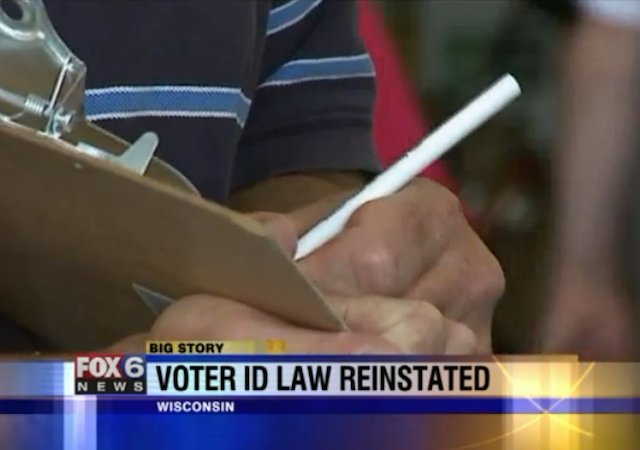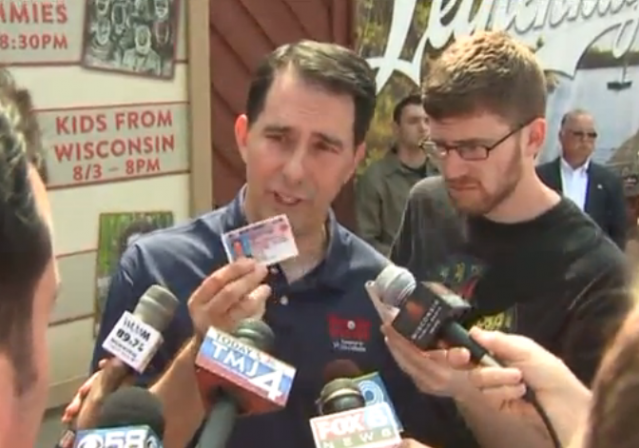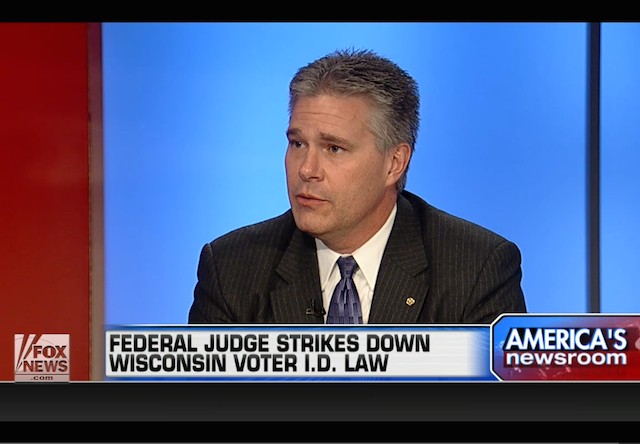Opponents of Wisconsin Voter ID seek full appeals court review
on September 18, 2014
16 Comments
The legal challenges surrounding Wisconsin's contentious voter ID law just got a little more complicated.
On Tuesday, the American Civil Liberties Union, League of United Latin American Citizens of Wisconsin and Advancement Project asked for a full-court hearing to reconsider September 12th's ruling allowing the State to implement voter ID requirements in time for the midterm elections.
Via Bloomberg:
Contending last week’s ruling by a three-judge panel of the U.S. Court of Appeals in Chicago came too close to the election date and will sow confusion among voters and polling place officials, the American Civil Liberties Union, League of United Latin American Citizens of Wisconsin and Advancement Project asked for a rehearing by a full 10-judge panel. The groups submitted their request yesterday. The court today gave Wisconsin officials until Sept. 23 to respond. ... “No court has permitted a voter ID law to go into effect this close to an election based on last-minute changes to the law,” the opponents of the measure said in yesterday’s filing.September 12's ruling allowed the provisions to go into effect only because the State eliminated barriers to acquiring a valid ID. This countered arguments that the requirements could cause irreparable harm to voters:










